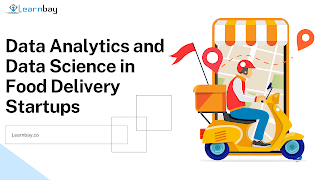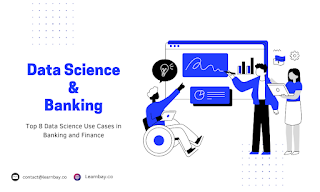5 Key Data Science and Analytics Trends
Introduction
Data science and analytics are developing more quickly than ever, and many forecasts suggest that this pace of development won't slow down anytime soon. Considering how well they fit into the current corporate landscape makes a lot of sense. Even so, it goes beyond. Currently, these domains are among the fundamental driving forces in many significant industries, even those where profit is not the primary motivator.
There is plenty of room for integrating cutting-edge analytical solutions in various sectors, from logistics to healthcare. It will be intriguing to watch where the future leads us since, in many ways, we are only beginning to scratch the surface of what is possible. Let's look at some of the major trends currently in the works till then. To master data analytics tools, visit the data analytics course in Bangalore.
Fraud – Aiding and Fighting Against It
Unfortunately, data science has been significantly implicated in deception on both sides. On the one hand, some bad actors can easily mimic communication from other parties thanks to technology, including making false voice recordings and films.
While the majority of attention has been on the uses of this technology in entertainment, other industries, including finance, have been having serious problems due to similar developments. Companies are frantically searching for alternatives since video identity verification is fast losing its reliability, raising privacy-conscious customers' eyebrows.
Conversely, cutting-edge analytical technologies are currently leading the fight against con artists.
Tech Stacks Are Getting More Streamlined
When data science first started to take off, the technological frontier of the discipline was a complete mess. It was challenging for newbies to orient themselves in a path that didn't face the danger of obsolescence since researchers were trying to employ almost every language, and the tech stack is known to man to figure out what works and what doesn't.
Now, the situation is different. We're already observing several entire stacks stabilizing on the market and attracting interest from businesses at all levels. A number of languages, like R and Python, have become leaders in their respective fields.
And it's a fantastic shift for folks looking to enter the sector because it gives them much more security and confidence while they're learning, which is when people need that type of assistance the most.
Lower Technological Barrier of Entry
In the past, organizations that could afford the pricey professionals needed to manage those systems were thought to be the only ones able to apply data analytics. No more. More than ever, sophisticated analytical answers are being presented in approachable forms geared toward those without prior knowledge of the subject.
In the tech sector, generally, that is not a new tendency. Just take a look at application development. A few decades ago, even the most fundamental foundation needed to be completed by expensive, highly skilled professionals.
These professionals are still required today, albeit in far more specialized roles. Researchers are continually trying to advance programming paradigms. However, the remaining tasks are carried out by those with less expertise, who do so while using tools that have been fine-tuned over many years to be user-friendly.
With data science and analytics, the same is already taking place. And it'll probably keep happening throughout the coming years, maybe even the entire decade. This is fantastic news for everyone concerned. It will be simpler for businesses to get in-depth analytics, and professionals will be free to concentrate on more difficult projects without always being assigned to trivial tasks.
A Growing Demand for Competent Specialists
This brings up a further crucial aspect. The work market has begun to change in certain predictable ways as these developments take hold. The need for the most skilled experts in that industry has been increasing rapidly, although businesses no longer require sophisticated specialists to manage their analytics (at least on a basic level).
This is because well-funded businesses seek to lead the way in developing new technologies, which still calls for sizable expenditures and skilled staff.
Those considering moving on this path have a bright future ahead of them. Furthermore, there is currently no sign that things will soon change course.
Greater Focus on Upkeep and Maintenance of Data Sets
The collection and storage of data for later analysis have increased dramatically during the past ten years. One advantage of modern data analytics is that it can function just as effectively with historical data, which has led some of the biggest corporations in the market—those who can afford the huge data centers required to keep all of that information—to exhibit borderline hoarding behavior.
But recently, a fresh fashion style has begun to take hold. Businesses are beginning to understand that much of the data they have been collecting for future study may be mostly worthless, at least in its current form.
Many firms today have enormous quantities of data that require a lot of sanitization effort because initial data gathering procedures need to be more attentive and organized. Unfortunately, there is still a significant amount of physical labor involved, and over the next 10 years, that will receive most of the focus.
Conclusion
In general, the world of data science is becoming more organized, with everyone having a designated role within the sector and predetermined project expectations. However, that doesn't imply that there would be fewer opportunities for qualified professionals to succeed; on the contrary. The greatest moment to get involved in that subject as deeply as possible is right now.
If you're interested in learning more about data science, you may pick from a variety of specialties on Learnbay's Data Science Course in Bangalore, which can provide you with a thorough grasp of the subject's fundamental principles. If you want to advance in data science, look into the available options right away!




Comments
Post a Comment